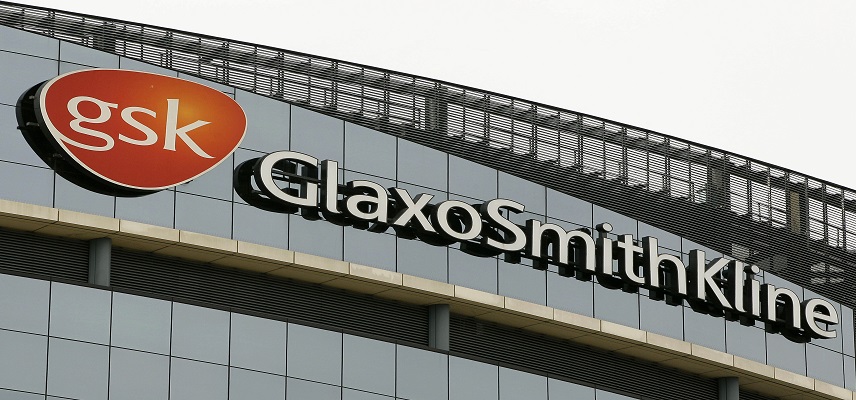GSK & Cambridge University Announce New Five-Year Collaboration in Kidney and Respiratory Disease
Overview
GSK plc announced it is investing £50 million into a major new five-year collaboration with the University of Cambridge and Cambridge University Hospitals, to accelerate research and development into immune-related diseases. The collaboration, which will be called the Cambridge-GSK Translational Immunology Collaboration (CG-TIC), builds on GSK and Cambridge University’s existing scientific relationship and will aim to find ways to more precisely treat immune-related disease with existing therapies, as well as develop new ones more rapidly. It will do this by enhancing our existing focus on understanding mechanisms of disease onset, disease progression, patient response to therapies and developing translational biomarkers.
Area of Focus
The collaboration (CG-TIC), will focus on two disease areas: respiratory and kidney.
- Kidney disease is estimated to affect 850 million people (roughly 10% of the world’s population) (International Society of Nephrology) and chronic respiratory diseases around 545 million people (The Lancet).
- Chronic kidney disease often leads to end-state disease, and current treatments like dialysis or transplant have significant negative impact on quality of life for patients.
Words from the CEO: GSK
Tony Wood, chief scientific officer, GSK, said: “Collaboration is at the heart of scientific progress and is fundamental to how we do R&D at GSK. We’re excited to build on our existing work with the University of Cambridge to further this world-leading scientific and technological capability in the UK. By bringing together Cambridge’s expertise and our own internal capabilities, including understanding of the immune system and the use of AI to accelerate drug development, we have an opportunity to help patients struggling with complex disease.”
Reseach Based on Hard-to-Treat Diseases
- CG-TIC takes a ‘translational’ approach, using AI and machine learning with patients at its core.
- Bringing together patient data and AI/ML, the Cambridge-GSK research team will focus on hard-to-treat diseases which affect the kidneys and lung and its findings will feed into the discovery and development of transformational therapies of the future.
Statement from University of Cambridge
Professor Deborah Prentice, Vice-Chancellor of the University of Cambridge, said: “The University sits at the heart of Europe’s leading life sciences cluster, where excellent research and the NHS’s clinical resources combine with the talent generated by the many innovative bioscience companies that call Cambridge home. Through this very important collaboration with GSK, Cambridge will be able to drive economic growth for the UK while improving the health of people in this country and around the world.”
Aim & Objectives of CG-TIC
- The aim of CG-TIC is to improve outcomes for patients and Cambridge provides a unique environment in which to involve them, with Cambridge University Hospitals playing a pivotal role in the collaboration and Royal Papworth Hospital, the UK’s leading heart and lung hospital, a likely future partner.
- Home to the hospitals and to much of the collaboration’s research activity, the Cambridge Biomedical Campus provides a unique environment where academia, industry and healthcare can come together and where human translational research is supported by the National Institute for Health and Care Research (NIHR) Cambridge Biomedical Research Centre.
Statement from the Secretary of State for Science
- Secretary of State for Science, Innovation and Technology Peter Kyle said: ""The UK's life sciences industry is thriving, driving innovation and improving lives. This collaboration between GSK and the University of Cambridge demonstrates our country's leading research and development capabilities.
- By focusing on cutting-edge research and harnessing the power of AI, this has the potential to advance the treatment of immune-related diseases, which could benefit patients both here in the UK and internationally. It's a clear example of how collaboration between industry, academia, and healthcare can deliver tangible results and strengthen the UK's position in healthcare innovation.
Leading Team for CG-TIC
CG-TIC will be co-led by Nicolas Wisniacki, VP, clinical research head, GSK, and David Thomas, Professor of Renal Medicine and principal investigator at the Cambridge Institute for Therapeutic Immunology and Infectious Diseases, Cambridge.

Optimize Your trial insights with Clival Database.
Are you exhausted from the uncertainty of trial insights pricing? Clival Database ensures the clarity in the midst of the global scenario for clinical trials to you.Clival Database is one of the best databases that offers an outstanding number of clinical trial data in terms of 50,000+ molecules and from primary regulatory markets as well as new entrants like Indian and Chinese markets.
With Clival, you get accurate positioning of historical sales data, patent database, company profiling, safety & efficacy, and prediction of launch of new innovative molecules helping you to align your research and driving down the cost.
To add value, we further break down our analytics for you so that improving your operational effectiveness; optimizing your clinical trials; and offering you accurate and high-quality data at lowest possible prices becomes possible.
Elevate your trial success rate with the cutting-edge insights from Clival database.
Check it out today and make more informed sourcing decisions! Learn More!







